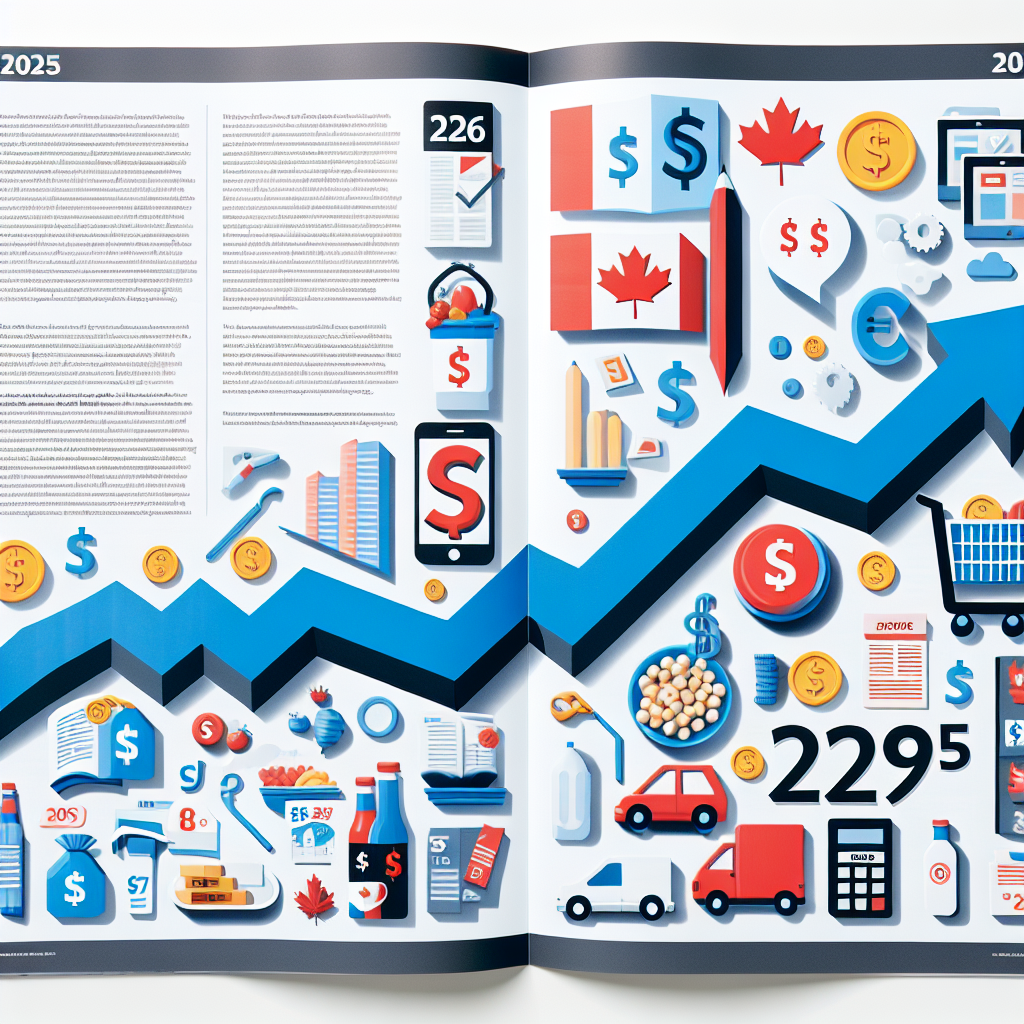Inflation in Canada 2025: Trends, Insights, and Economic Implications
As we look ahead to 2025, the inflation landscape in Canada is poised for significant changes. The Bank of Canada’s proactive stance on monetary policy, coupled with evolving economic conditions, provides both challenges and opportunities for Canadians. Understanding these dynamics is crucial for informed financial decision-making and long-term planning.
Understanding the Current Trends
Inflation in Canada has seen notable fluctuations over recent years, driven by various factors including supply chain disruptions, labor market dynamics, and global trade relations. In 2025, inflation is expected to hover around a targeted range of 2-3%, according to forecasts from both the Bank of Canada and leading economic analysts.
Key drivers of these trends include:
– Cost Pressures: Price increases in housing, essentials, and services have been a persistent concern for Canadian households. With the gradual easing of supply chain issues, some relief may be in sight, yet a robust recovery is anticipated.
– Wage Growth: As employers compete for talent, wage growth is likely to rise, contributing to increased consumer spending power. This, in turn, can prompt further inflationary pressure if demand outpaces supply.
Economic Implications
The implications of inflation for the Canadian economy in 2025 are multifaceted. Consumers will need to adapt to the changing cost environment, prioritizing budgeting strategies to mitigate the effects of rising prices. Meanwhile, businesses must remain agile, adjusting pricing models and operational strategies to maintain profitability amidst fluctuating costs.
To navigate inflation effectively:
– Budgeting: Families should reassess their budgets, focusing on essential expenses while finding opportunities for savings. Utilizing tools like online budget planners can enhance financial awareness and control.
– Investment Strategies: Investors may need to re-evaluate their portfolios, looking at sectors that historically perform well during inflationary periods, such as commodities and real estate.
Expert Insights and Recommendations
Insights from economic analysts suggest that Canadians should prepare for potential changes in interest rates as the Bank of Canada seeks to stabilize the economy. Monitoring inflation closely will be crucial for making timely financial decisions, such as refinancing loans or investing in inflation-protected assets.
Additionally, staying informed about macroeconomic indicators will benefit individuals and businesses alike. Here are some actionable recommendations:
– Stay Informed: Regularly check updates from the Bank of Canada and credible financial news outlets. Resources like Statistics Canada provide valuable data on inflation metrics.
– Engage with Experts: Consider consulting financial advisors for personalized advice tailored to your unique financial situation.
Social Media Highlights
-
Twitter: “🔍 Inflation in Canada is on the rise! In 2025, keep an eye on price tags and budget wisely. Check out our latest insights: [link] #CanadaInflation #Finance”
-
Facebook: “2025 brings new inflation challenges for Canadians. Our detailed analysis covers current trends, economic implications, and smart strategies to navigate budget changes. Explore more here: [link] #CanadianEconomy”
-
LinkedIn: “As we look towards 2025, understanding inflation and its effects on the Canadian economy is crucial. Dive into our in-depth article for expert insights and actionable advice for navigating this evolving landscape. Read more: [link] #FinancialLiteracy”
Conclusion
In conclusion, inflation in Canada for 2025 is expected to present both challenges and opportunities. By understanding the current trends and implementing informed strategies, Canadians can position themselves for financial success. It’s imperative to stay educated, engaged, and proactive in addressing the impacts of inflation on personal and business finances.
For continued updates and resources, follow us on our social media channels and subscribe to our newsletter. Together, we can navigate the complexities of inflation and empower our communities with knowledge and strategies for resilience.
Disclaimer: The projections and insights presented in this article are based on current data and analysis. For personalized advice, please consult with financial professionals.
